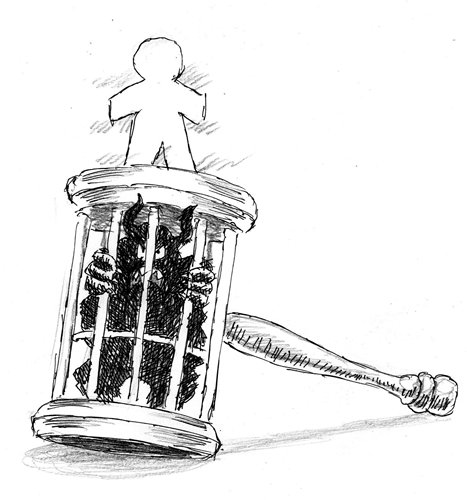
Illustrations: Peter C. Espina/GT
Xinhua in 2016 reported that 968 cases of sex abuse involving at least 1,790 children were recorded in the country between 2013 and 2015. Protecting minors comes down to first acknowledging the problem, changing our attitudes, educating all to avoid disinformation and fear-mongering, and making sure a law is in place to protect the vulnerable.
In August, a law was passed to protect minors from abuse on school campuses. This law, which came into effect in Hangzhou, was the first aimed at protecting those under 14 and identify staff or persons familiar to the child as a perpetrator. And now - the highest national level agency responsible for prosecution and investigation in China - the Supreme People's Procuratorate released its first batch of guidelines for handling cases involving sexual assault and abuse of minors.
Such guidelines are needed to give local judges a way to accurately examine and make judgments on evidence around sexual assault cases against minors. This move can be seen as both an upgrade and acknowledgement of the need to strengthen law in this often undermined, hidden and taboo subject.
Parents and teachers who were never provided a comprehensive and healthy sex education cannot guide minors to adopt an equally healthy view toward sex and what constitutes abuse. The nature of sexual abuse is a horrific, hidden and uncomfortable subject. Often evidence seems hard to obtain and this makes it harder when testimonies are not preserved and the way to extract these are not properly handled by law enforcers. It is easy to keep victims quiet and even if they share their experience, it can be dismissed since the child "may not be speaking the truth." Children generally don't lie and do so only when told to or when they assume the behavior to be normal.
There have been cases of principals raping children in hotel rooms, 12-year-olds getting pregnant, and a father caught molesting his daughter on a train. But most such cases don't see the abuser being prosecuted. There is considerable discussion about the topic and I cringe when reading online posts that are not very healthy and all about creating fear and further misunderstanding on the issue.
A victim "might heal" physically but the psychological scars don't go away. While most offenders are males, females are also known to be abusive, so perpetrators are genderless. Crimes are also known to be committed by children, so perpetrators are ageless. Those who have been abused are likely to abuse others, so perpetrators multiply. Finally, "stranger danger" is misleading since a majority of children are abused by someone in their social circle or those they know (family members, teachers, staff, neighbors), hence abusers are generally not strangers. Moreover, the definition of abuse is broad and foggy, for example: the myth of stranger danger and sex abuse being an actual penetration or direct physical touching.
Thus, one aspect of the guidelines worth noticing is a section on how to deal with abuse when internet, technology and communication tools are involved in the case. Indirect physical contact does not mean that a child's body has not been exploited. There have been past cases of minors being threatened online and forced to send nude photos. Under the fresh guidelines, this new form of digital abuse is also a crime.
If an author was jailed 10 years for writing an erotic gay novel then anyone caught abusing children verbally, physically or sexually must be sentenced to life or even death. Culture, nationality and relationship of an abuser with the victim are not factors that could hinder sentencing. Crimes of sexual assault and abuse of kids must be severely punished and this is a right step to ensuring that the children of China are well protected!
The author is a freelance writer. She was born in China, raised in Australia, educated in China, Australia and France. opinion@globaltimes.com.cn
